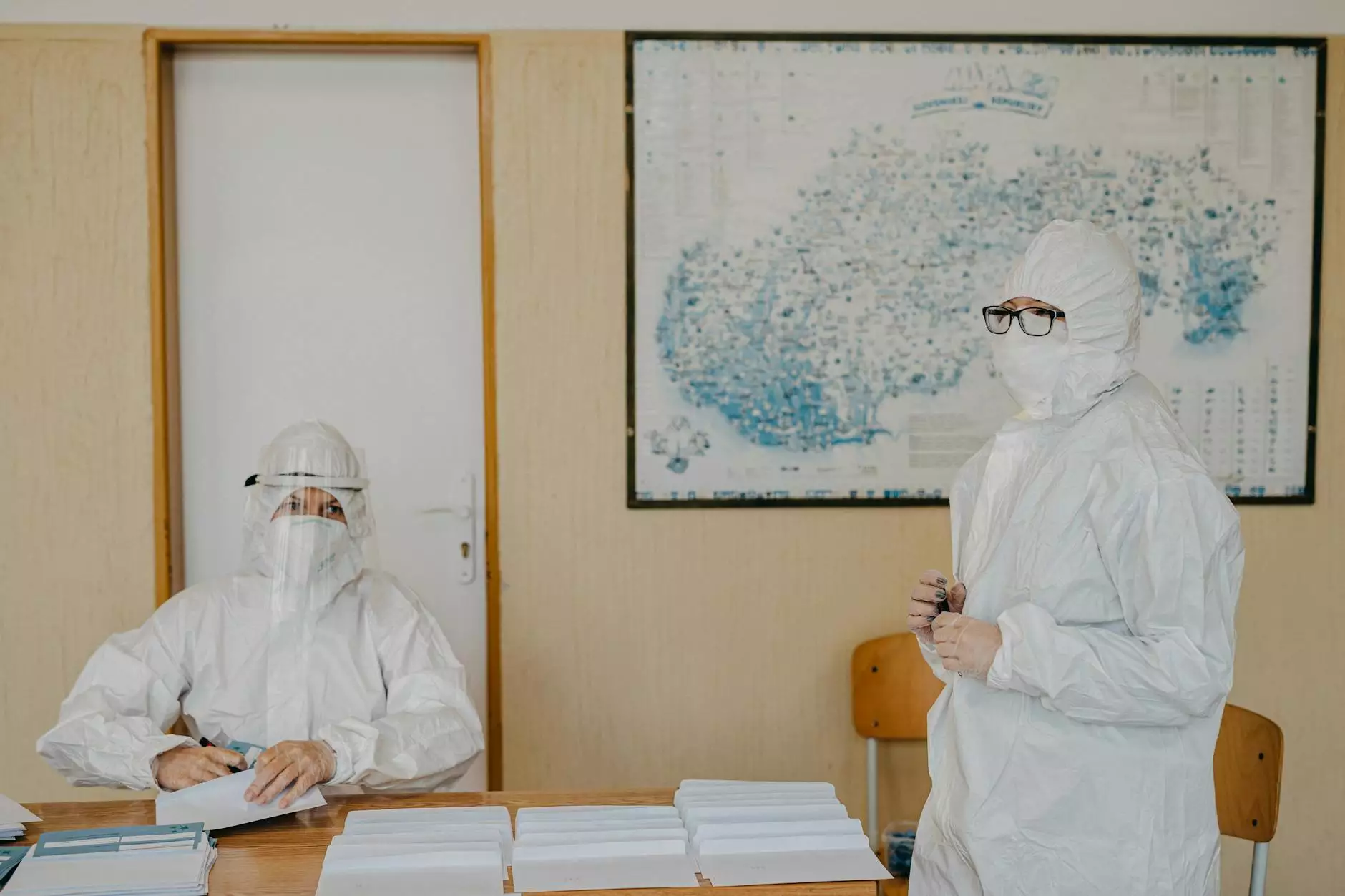Exploring Biohazard Jobs: Opportunities and Insights in Biohazard Cleanup

In today's world, the demand for biohazard jobs has significantly increased due to growing awareness of health and safety, environmental issues, and the imperative need for professional cleanup services. Biohazard cleanup is not just a service; it is a critical component of public health, safety, and environmental management. In this comprehensive article, we will explore the various aspects of biohazard jobs, including the types of roles available, necessary skills, and the importance of these jobs in maintaining community health.
Understanding Biohazard Cleanup
Biohazard cleanup involves the removal and remediation of hazardous materials that pose a risk to human health or the environment. These materials can include:
- Biological agents (bacteria, viruses, fungi)
- Blood and bodily fluids
- Potentially infectious waste
- Toxic chemicals and hazardous substances
- Contaminated materials after traumatic incidents
The professionals involved in biohazard cleanup play a vital role in ensuring that properties are restored to a safe condition, thereby reducing the risk of health hazards for the public and preventing further environmental impact.
The Significance of Biohazard Jobs
Biohazard jobs are crucial for numerous reasons:
1. Protecting Public Health
One of the primary responsibilities of those working in biohazard cleanup is to protect individuals from exposure to harmful substances. When hazardous materials are left unaddressed, they can lead to severe health issues, including infections and diseases. Cleaners equipped with the right training and knowledge ensure that sites are decontaminated effectively.
2. Environmental Preservation
In addition to protecting human health, biohazard jobs also focus on preserving the environment. Improper disposal or management of biohazardous waste can lead to soil and water contamination. Environmental specialists in this field work diligently to ensure that materials are disposed of in compliance with legal regulations and standards.
3. Emergency Response and Recovery
Biohazard professionals often work alongside first responders during emergencies. Their expertise is essential in situations involving chemical spills, natural disasters, or crime scenes, where immediate action is necessary to safeguard individuals and property.
Types of Biohazard Jobs
The biohazard cleanup field offers a myriad of career opportunities, each demanding distinct skills and expertise. Here are some of the most common job titles associated with biohazard cleanup:
1. Biohazard Cleanup Technician
Biohazard cleanup technicians are often on the front lines. Their primary duties involve:
- Assessing contaminated sites
- Using personal protective equipment (PPE)
- Removing hazardous materials
- Following safety protocols to mitigate risk
- Documenting the cleanup process
This role requires physical stamina, attention to detail, and a commitment to safety.
2. Environmental Health and Safety (EHS) Specialist
EHS specialists focus on creating and implementing programs that promote workplace safety, particularly in settings where biohazards are present. Their responsibilities can include:
- Conducting safety audits
- Training employees on hazard awareness
- Ensuring compliance with regulations
3. Forensic Cleanup Specialist
Forensic cleanup specialists deal specifically with crime scenes, accidents, or trauma situations. Their tasks include:
- Cleaning and decontaminating crime scenes
- Working closely with law enforcement agencies
- Understanding biohazards unique to crime scenes
4. Waste Management Coordinator
This role involves managing the disposal and treatment of biohazardous waste. Responsibilities may include:
- Ensuring compliance with waste disposal regulations
- Tracking waste disposal processes
- Coordinating with hazardous waste facilities
Skills and Qualifications Needed for Biohazard Jobs
To pursue a career in biohazard cleanup, candidates must possess several vital skills and qualifications:
1. Training and Certification
While some positions may require only a high school diploma, many biohazard jobs necessitate specialized training, such as:
- Hazardous Waste Operations and Emergency Response (HAZWOPER) certification
- Bloodborne Pathogens training
- Certifications in environmental health and safety
2. Attention to Detail
Biohazard cleanup requires meticulous attention to detail to ensure that all hazardous materials are properly identified and removed.
3. Physical Fitness
Technicians often engage in strenuous physical activity, including lifting heavy items, wearing protective gear, and working in challenging environments.
4. Strong Communication Skills
Effective communication skills are vital for collaborating with team members, preventing misunderstandings, and ensuring that cleanup protocols are followed accurately.
The Importance of Safety in Biohazard Jobs
The nature of biohazard cleanup necessitates a strong emphasis on safety. Workers must adhere to strict safety protocols to minimize the risks associated with exposure to harmful substances. Regular training and drills help reinforce these practices, ensuring that all team members are prepared for emergencies. Key safety elements include:
- Proper use of PPE (gloves, masks, biohazard suits)
- Understanding the principles of biohazard containment
- Safe transportation and disposal of hazardous materials
The Future of Biohazard Jobs
As awareness of health and safety continues to grow, the demand for biohazard jobs is expected to rise. Factors contributing to this growth include:
- Increased regulations around hazardous waste disposal
- Growing number of healthcare facilities requiring biohazard cleanup services
- The rise of public health concerns, particularly in light of recent global events
In addition, advancements in technology are improving the effectiveness of cleanup processes and training, making it easier and safer for workers to manage biohazardous materials.
Conclusion
Biohazard jobs play a crucial role in protecting public health and the environment. As societal needs evolve, so too will the opportunities within the biohazard cleanup industry. For those looking to start a rewarding career that makes a significant impact, pursuing a position in biohazard cleanup can be both fulfilling and essential. At biohazardplus.com, we are dedicated to providing top-notch services and fostering professional growth in the biohazard cleanup field. Whether you are considering a career in this industry or in need of cleanup services, understanding the significance of biohazard jobs is the first step towards a safer and healthier community.









